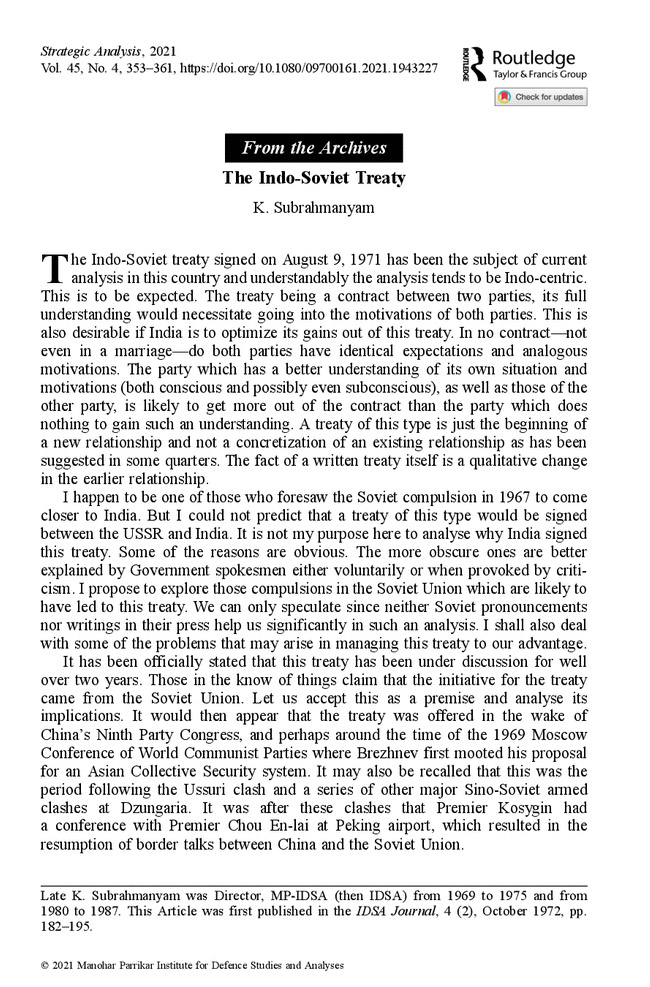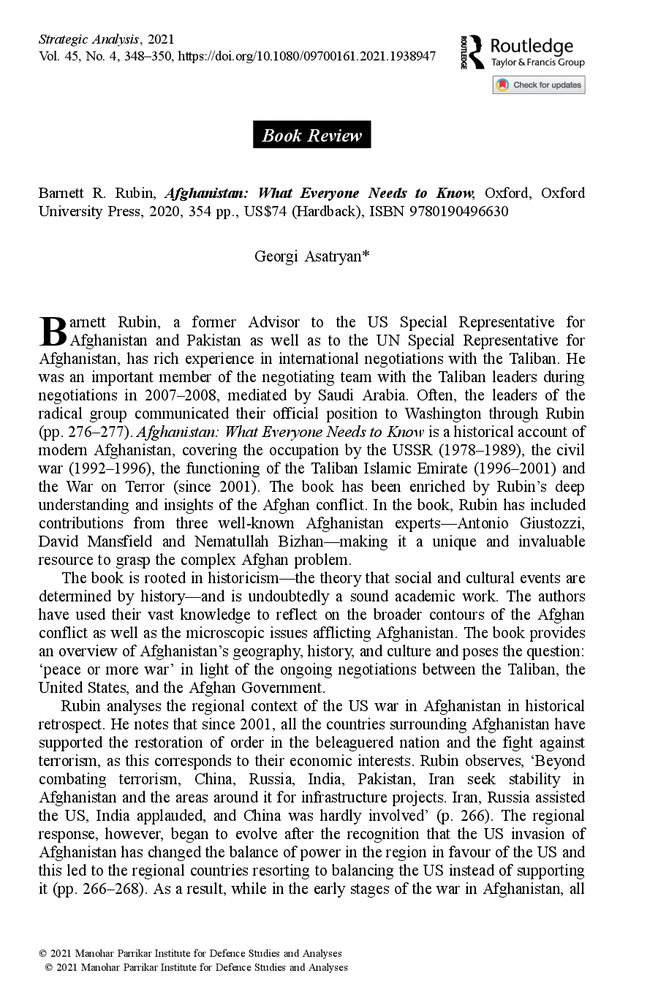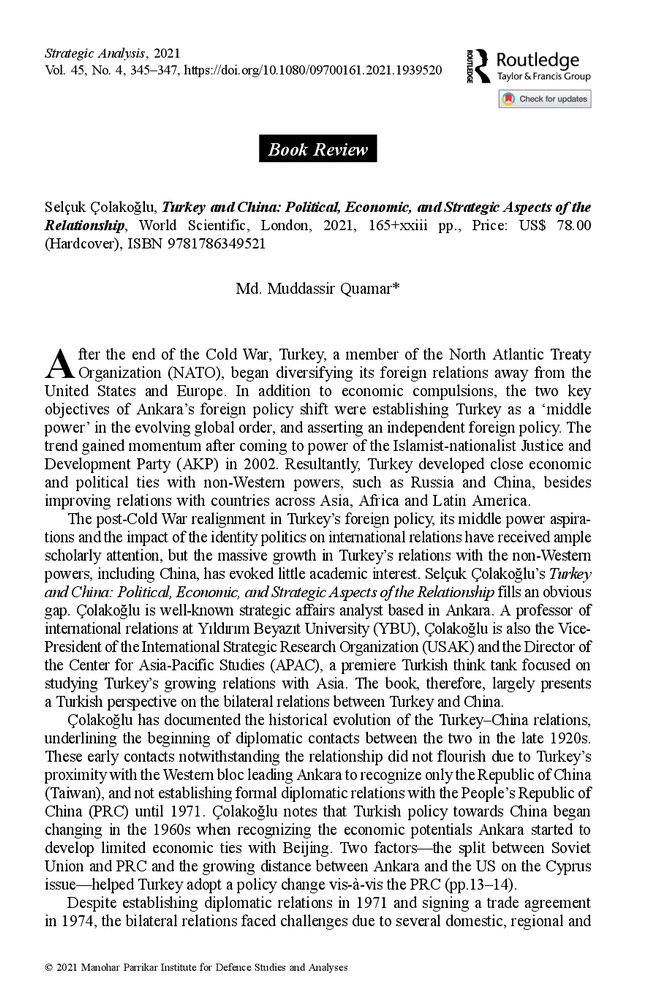India–Australia: Defining New Horizons of Engagement
The landmark virtual summit between Prime Ministers Narendra Modi and Scott Morrison in June 2020 led to ties being upgraded to a Comprehensive Strategic Partnership. Australia’s High Commissioner to India alluded to the four D’s—Democracy, Defence, Diaspora, Dosti (friendship), with increased focus on Defence. In the India–Australia partnership, the emphasis is on maritime security cooperation, Quad 2.0, the Malabar exercises as well as cyber security and intelligence cooperation.
- Pankaj K Jha , Shaun Star |
- September 2021 |
- Strategic Analysis










